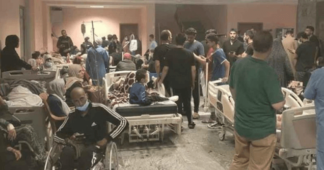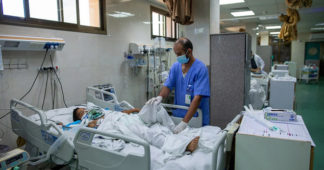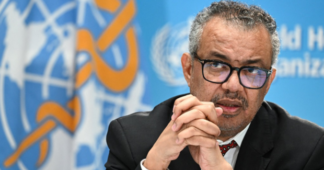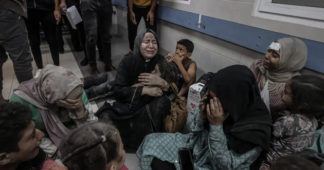By MEE staff
August 13, 2025
New research from The Lancet finds that two-thirds of specimens collected at al-Ahli hospital in Gaza City are resistant to antibiotics
Diseases resistant to antibiotics are prevalent across Gaza amid Israel’s war and blockade across the territory, according to new analysis.
A new peer-reviewed research comment published by the medical journal The Lancet on Tuesday analysed 1,300 specimens collected in al-Ahli hospital in Gaza City between November 2023 and August 2024.
The study defined multidrug resistance as a bacterium that could not be killed by at least one drug in three or more classes of antibiotics.
Analysis found that 66.9 percent of assessed samples were found to be multidrug resistant.
The antibiotics the bacteria were resistant to included amoxicillin-clavulanate, cefuroxime and cefotaxime.
The presence of MRSA, or methicillin-resistant Staphylococcus aureus, which is resistant to several antibiotics, was detected in some samples.
A horrible picture
It marks the first study since Israel’s genocide in Gaza began in October 2023 to suggest a prevalence of multidrug resistant bacteria in the enclave.
“This will mean longer and more serious illnesses and a high risk of transmission to others. It means an increased risk of death from really common infections. It means more amputations. It’s a horrible picture,” Krystel Moussally, epidemiology adviser to Doctors Without Borders (MSF), told the Guardian.
Al-Ahli hospital is one of the only facilities in Gaza where a microbiology laboratory is still functional.
Israel has imposed a near-total blockade on food and humanitarian aid into Gaza since March, including the entry of medical supplies.
The World Health Organisation (WHO) on Tuesday called on Israel to allow it to restock urgently needed medical supplies before an Israeli plan to “take over” Gaza City worsened an already “catastrophic” situation.
Over half of the Gaza health system’s medicines are running at zero stock, according to Rik Peeperkorn, the WHO’s representative in occupied Palestine. Peeperkorn said Israel’s “cumbersome procedures” had prevented the entry of vital medicines into Gaza.
He said only half of hospitals and 38 percent of primary health care centres were operating partially. No facility is operating at full functionality.
Peeperkorn added that bed occupancy had reached 240 percent capacity at al-Shifa hospital, the largest medical facility in Gaza, and 300 percent at al-Ahli hospital.
The authors of the Lancet report said that the international medical community had a “duty to act” to respond to the crisis.
“First and foremost, health-care workers and governments worldwide must advocate for the cessation of the Israeli military invasion that has resulted in a surge of trauma injuries and the widespread deliberate targeting of hospitals, laboratories, and water desalination plants,” they wrote.
“Without this ceasefire, the infection burden will escalate further.”
The authors added that laboratories that are still functional should be stabilised, and that drug supply should be coordinated across aid agencies and donors, “so that the antimicrobial response is tailored to the documented need of hospitals”.
We remind our readers that publication of articles on our site does not mean that we agree with what is written. Our policy is to publish anything which we consider of interest, so as to assist our readers in forming their opinions. Sometimes we even publish articles with which we totally disagree, since we believe it is important for our readers to be informed on as wide a spectrum of views as possible.











